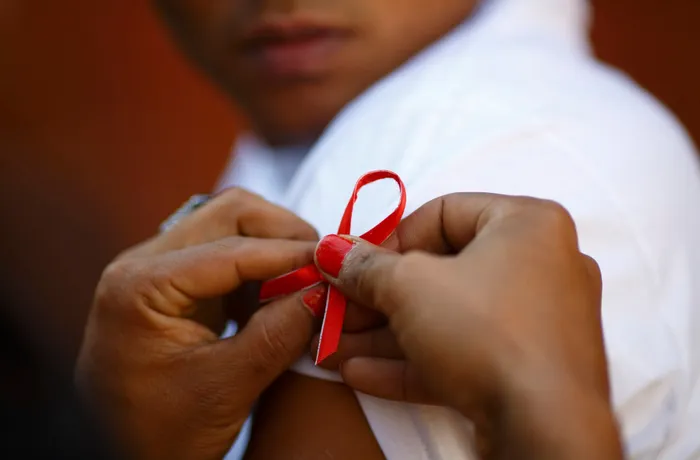
Lenacapavir is available in both oral tablet form and as subcutaneous injections. It is available as oral tablets and subcutaneous injections, with the injections given every six months after an initial oral and injection phase.
Image: REUTERS/Navesh Chitrakar
There is widespread hope for curbing HIV after the United States Food and Drug Administration (FDA) approved an injectable drug for HIV prevention recently.
Lenacapavir is a medication used to treat and prevent HIV infection. It functions as a capsid inhibitor, meaning it blocks the protein shell (capsid) that HIV requires to replicate.
Lenacapavir is available in both oral tablet form and as subcutaneous injections. It is available as oral tablets and subcutaneous injections, with the injections given every six months after an initial oral and injection phase.
The drug comes as relief as it could help overcome barriers such as having to take pills daily, frequent clinic visits and the stigma associated with HIV prevention.
Clinical trials, conducted in South Africa and Uganda, have demonstrated its 100% efficacy in preventing HIV transmission when administered every six months. This injectable offers a potential alternative for individuals who may not adhere to daily oral PrEP medication.
More than 5 000 participants were involved in the research, according to the Institute of Infectious Diseases and Molecular Medicine.
South Africa has the highest number of people living with HIV globally, with an estimated 8.2 million individuals, or 13.7% of the population, according to recent estimates.
Lenacapavir will come as good news for many people seeking protection from HIV, but they often feel depressed and forget to take their medication daily.
A study done by the Southern African Journal of HIV Medicine pointed out several barriers and one facilitator of adolescents’ ART, with adherence as one of them.
The identified barriers to adherence included factors related to school, social situations, health services, treatment, and the individual patient.
Factors related to the school environment, such as commitment to schoolwork, communication with teachers, and negative attitudes from teachers, have been found to discourage access to clinics, disclosure of health status, and adherence to antiretroviral therapy (ART).
Participants frequently expressed feeling torn between their school responsibilities and the need to attend clinic appointments.
Although there was a school located near the clinic, many participants opted to attend a different school.
''It would be nice for us to come at our own time so that we do not have to miss our schoolwork. That way, we can balance our lives. Your school work doesn’t suffer because of the clinic appointments, and vice versa,'' said a group of males, aged 18.
While the new drug is generally hailed in the fight against HIV Aids, there could be a stumbling block: the cost.
Although the drug manufacturer Gilead has not yet made the price of the drug public, it is estimated to be on par with current preventive medications, at about $25,000 (£18,400) per year. As a treatment for people already living with HIV, it costs approximately $ 39,000 (nearly R700 000) annually.
Research from the University of Liverpool and other institutions suggests that it could be produced for as little as $25 (£18.40) per year, including a 30% profit margin.
Speaking on Newzroom Afrika recently, Sibongile Tshabalala from Treatment Action Campaign said it could take longer for Lenacapavir to be available due to cost and patent laws.
She said that the one jab could cost R500 000. Two injections are needed annually.
''You need to be a millionaire to afford the injection. It's very expensive. And also our government won't be able to buy (it) for us. The projections are showing that we will get this (injection) by around 2035; ten years from now, while the research was done in South Africa and while the breakthrough was found in South Africa.''
But there's renewed hope.
According to AFP, lower-income countries could gain access to a “game-changing” HIV prevention drug with a new deal signed between US pharmaceutical giant Gilead and the Global Fund, the health financing group said this week.
While details of the deal regarding the cost are not publicly known, Health Minister Aaron Motsoaledi hailed the drug: “This is a game changer for South Africa.”
Statistics show that Sub-Saharan Africa accounts for 67 percent of global HIV cases. Tshabalala urged governments of the region to get together and start companies to manufacture vaccines for the benefit of their people